Accounting teams often juggle spreadsheets, data imports, invoice approvals, and month-end closes. Each step demands time and leaves room for error. NetSuite automation shrinks that burden. It replaces repetitive chores with smart workflows, freeing staff to focus on analysis and strategy. You’ll explore common pain points, see how NetSuite tackles them, and learn why Anchor Group stands out as your implementation partner.
Common Manual Accounting Challenges
Manual accounting drains energy and slows operations. You might recognize one or more of these hurdles:
- Data entry overwhelm
- Late invoice approvals
- Fragmented reporting across systems
- High error rates in reconciliations
- Limited visibility into cash flow
When teams type journal entries by hand, they invite typos. When approvals wait for email chains, payables delays mount. Fragmented data in separate ledgers hinders quick insight into performance. Each manual step slows decisions.
Benefits of NetSuite Automation
NetSuite tackles those challenges head-on. The platform automates key tasks, trims error rates, and speeds close cycles. Let’s break down how it works.
Streamlined Data Entry
Ever import CSV files only to find format mismatches? NetSuite uses prebuilt connectors and templates. You map vendor invoices, payments, or payroll data once. From then on, the system ingests files automatically. No more cut-and-paste errors. No more late nights fixing columns.
- Auto-map fields for invoices, vendor bills, expense reports
- Schedule imports at set intervals (daily, weekly)
- Validate entries against custom rules before posting
Real-Time Financial Visibility
Waiting for a month-end close to know your true gross margin feels risky. NetSuite updates ledgers in real time. Every transaction posts immediately, feeding dashboards and reports. You track sales orders, open invoices, and cash balances as they happen.
- Live dashboards for revenue, receivables, payables
- Role-based views for finance managers and executives
- Drill-down from summary figures into source transactions
Automated Reconciliations
Bank reconciliations often take days. Teams match hundreds of transactions by hand. NetSuite’s bank feeds import statements daily. The system applies smart matching rules, suggesting matches for 80–90% of entries. You only review exceptions.
- Daily bank statement imports via secure feeds
- Custom matching logic for recurring patterns
- Auto-post clearing entries once matches finalize
Error Reduction and Compliance
Manual processes carry audit risks. A missing signature or garbled spreadsheet cell can trigger compliance red flags. NetSuite enforces approval chains. You set who can create, modify, or approve entries. Every change tracks a user ID, date, and time.
- Role-based approvals for journal entries and bills
- Audit trails detailing field changes and user actions
- Automated alerts for out-of-bounds transactions
Scalable Reporting
As your business grows, finance demands expand. You need consolidated statements across subsidiaries or product lines. NetSuite’s multi-book accounting supports multiple GAAP sets and tax regimes in one instance. You generate both local and global reports with a few clicks.
- Multi-currency, multi-subsidiary consolidation
- Flexible segment definitions (department, location, class)
- Drillable financial statements for deep analysis
Implementation Considerations
Implementing NetSuite requires planning. Skipping best practices risks delays and unused features. Keep these factors in view:
- Business process review
- Map existing workflows.
- Identify manual tasks primed for automation.
- Data cleansing and migration
- Audit your chart of accounts.
- Standardize vendor and customer lists.
- User training and change management
- Offer role-based training sessions.
- Provide quick-reference guides for common tasks.
- Phased go-live approach
- Pilot core modules (general ledger, AR/AP).
- Add advanced features (fixed assets, budgeting).
- Ongoing optimization
- Track adoption metrics.
- Gather user feedback each quarter.
Best Practices for Maximizing Automation
By following these guidelines, you’ll unlock NetSuite’s full power:
- Define clear objectives for each automation project.
- Document existing pain points and desired outcomes.
- Configure workflows before customizing code.
- Use sandbox environments to test new scripts.
- Maintain a change log to track configuration updates.
- Establish a governance team to oversee system health.
Why Choose Anchor Group for NetSuite Implementation?
Selecting a partner matters as much as selecting software. Anchor Group offers deep expertise in NetSuite deployments. Here’s what sets us apart:
- Proven Track Record
You’ll work with NetSuite consultants who implement NetSuite for manufacturers, distributors, and retailers. They understand industry nuances and compliance demands. - Flexible Engagement Models
Whether you need end-to-end support or targeted assistance, Anchor Group adapts. We align our services with your budget and timelines. - Industry-Specific Solutions
Our team has prebuilt templates and workflows for discrete and process manufacturers. You’ll deploy faster and capture ROI sooner. - Data Integrity Focus
We prioritize data cleansing and validation. That commitment slashes migration risk and ensures reporting accuracy from day one. - Long-Term Partnership
Beyond go-live, we offer managed services. You gain a trusted adviser who monitors system health, rolls out updates, and trains new users.
Moving Forward
Manual accounting tasks no longer need to sap your team’s energy. NetSuite automation clears repetitive work, cuts errors, and delivers up-to-the-minute financial insight. Anchor Group brings the know-how to configure, customize, and support your implementation. Reach out today to start automating and let your finance staff focus on high-value work.


